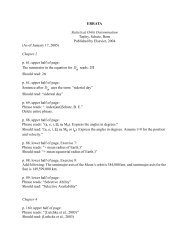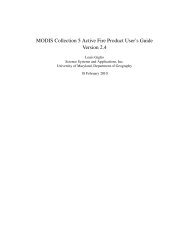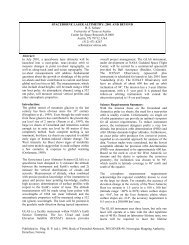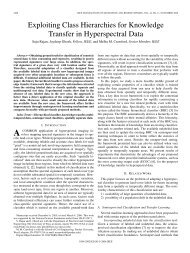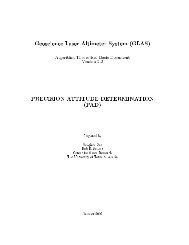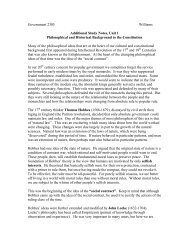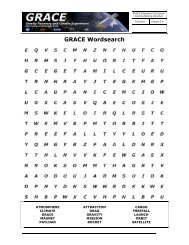Unit 3 Lecture Notes (PDF format)
Unit 3 Lecture Notes (PDF format)
Unit 3 Lecture Notes (PDF format)
- No tags were found...
Create successful ePaper yourself
Turn your PDF publications into a flip-book with our unique Google optimized e-Paper software.
4) Nominate federal judges, subject to confirmation by a simple<br />
majority of the Senate<br />
5) Receive ambassadors of other nations (important because it confers<br />
diplomatic recognition of other governments)<br />
6) May grant pardons for federal crimes (excepts impeachments)<br />
7) Present to Congress “from time to time” in<strong>format</strong>ion on the State<br />
of the Union<br />
8) Convene both Houses of Congress on extraordinary occasions<br />
9) Adjourn Congress if both the House and the Senate cannot agree<br />
on adjournment<br />
10) Nominate officials as provided for by Congress (when new<br />
posts are created because Congress creates a new department or<br />
agency, the president is allowed to name the head of that post)<br />
subject to confirmation by a simple majority of the Senate<br />
11) Fill administrative vacancies during Congressional recesses<br />
12) Recommend legislation to Congress<br />
13) Veto legislation, which could be overridden by a 2/3’s vote of<br />
both Houses of Congress<br />
Compared to the powers given to Congress, the above are much less<br />
substantial. Please notice that a good number of the powers of the president<br />
are contingent upon approval by the Senate. This was indeed deliberate and<br />
part of the concept of separation of powers which we have discussed many<br />
times in class. Government power is to be, theoretically, limited.<br />
Foundations of the Modern Presidency<br />
What has happened over time, however, is that the office of the president has<br />
gained considerable power and authority. Over the course of American<br />
history, the president’s constitutional powers have been extended in practice<br />
beyond the intentions of the Founding Fathers. Though only Congress can<br />
declare war, presidents have made war by sending troops into military<br />
action. Presidents have power over U.S. diplomacy and have surpassed<br />
Congress in functioning as the principle architect of foreign policy, using<br />
executive agreements as a device to bypass the Senate’s formal treaty<br />
making authority. Even the president’s authority to appoint administrators<br />
and the execute laws has exceeded the vision of the Founding Fathers. The<br />
power to execute laws enables presidents to determine how laws will be<br />
interpreted and applied. Presidents possess legislative authority not only to



